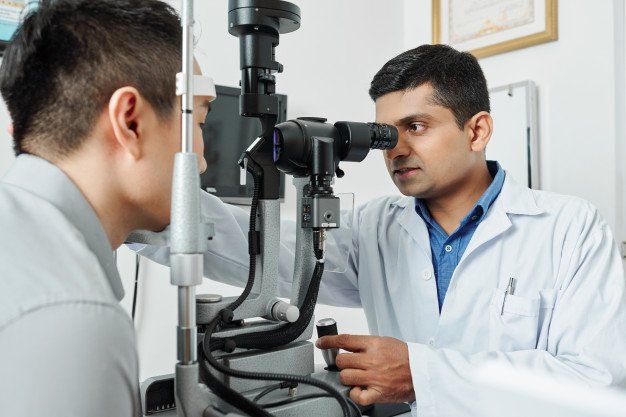Don’t Rush When You Brush
Don't Rush When You Brush
Patients who are eligible for Medi-Cal, are also eligible for dental care through the California Denti-Cal program. When you became eligible for Medi-Cal, you should also have signed up for Denti-Cal.
Good dental and oral health care are critical for helping you maintain your body’s natural defenses against keeping bacteria under control. It also helps to prevent diseases or from a disease you may have from getting worse.
Like other parts of your body, your mouth is full of bacteria – but by brushing and flossing you can keep the bacteria under control. Without proper oral hygiene, bacteria can reach high levels that might lead to oral infections, such as tooth decay and gum disease.
Poor oral health might contribute to various diseases and conditions, including:
- Endocarditis: which is an infection of the inner lining of your heart chambers or valves (endocardium) typically occurs when bacteria or other germs from another part of your body, such as your mouth, spread through your bloodstream and attach to certain areas in your heart.
- Pregnancy and birth complications. Periodontitis has been linked to premature birth and low birth weight.
- Pneumonia. Certain bacteria in your mouth can be pulled into your lungs, causing pneumonia and other respiratory diseases.
Certain conditions also might affect your oral health, including:
- Diabetes. By reducing the body’s resistance to infection, diabetes puts your gums at risk. Gum disease appears to be more frequent and severe among those who have diabetes.
- HIV/AIDS. Oral problems, such as painful mucosal lesions, are common in people who have HIV/AIDS.
- Osteoporosis. This bone-weakening disease is linked with periodontal bone loss and tooth loss. Certain drugs used to treat osteoporosis carry a small risk of damage to the bones of the jaw.
- Alzheimer’s disease.Decaying oral health is seen as Alzheimer’s disease progresses.
Notify your dentist about the medications you take and about changes in your overall health, especially if you’ve recently been ill or have a chronic condition such as diabetes.
Practice good oral hygiene daily, including:
- Brush your teeth at least twice a day with a soft-bristled brush using fluoride toothpaste.
- Floss daily.
- Use mouthwash to remove food particles left after brushing and flossing.
- Eat a healthy diet and limit food with added sugars.
- Replace your toothbrush every three months or sooner if the bristles are splayed or worn.
- Schedule regular dental checkups and cleanings.
- Avoid tobacco use.
Contact your dentist as soon as an oral health problem arises. Taking care of your oral health is an investment in your overall health.
Here are eight reasons why dental care is important:
Healthy Gums for a Healthy Heart
Recent research has linked oral inflammatory heart disease and elevated heart disease risk. According to the Canadian Academy of Periodontology, people who suffer from periodontal disease are at a much higher risk of suffering from a severe heart attack.
Gum disease is caused by an extended amount of exposure to bacteria which can lead to cardiovascular disease. You should schedule regular checkups as well as tracing your family history for any health problems.
A Healthy Mouth Leads to a Healthy Pregnancy
Simply examining your mouth or some of your saliva can tell your doctor a lot about what is going on in your body. Pregnant women should practice good oral hygiene because their oral health affects them and their baby.
Regular checkups with your dentist and hygienist become a lot more important during a pregnancy. Research by Health Canada states that pregnant women who have poor oral health are more likely to deliver preterm babies than pregnant women who have good oral health.
Babies that are born preterm stand a much higher chance of suffering from complications and developmental problems as well as facing higher chances of infant death.
Straight Teeth Lead to Better Oral Health
Straight teeth allow you to bite, chew and speak clearly. Properly aligned straight teeth are much easier to clean and also prevent jaw problems while reducing the wear and tear of the enamel on your teeth.
Avoid Oral Cancer
Most dentists complete a cancer screening as part of their dental checkup routine.
The symptoms of oral cancer can be found in the form of a precancerous lesion which starts off as a small white or dark red patch inside the mouth. These lesions may not have any effect on you immediately. Only about half of all patients who have been diagnosed with oral cancer survived for more than five years, so discovering any early signs of the disease is extremely important.
Preventing Gum Disease
Proper brushing and flossing goes a long way towards keeping gum disease at bay. Removing plaque is important in preventing gum disease and improving your mouth health. You should schedule a professional cleaning with your dentist at least twice a year. Early stages of gum disease can be treated if caught early.
If gum disease happens to be more advanced, scaling and root planning can be carried out to treat diseased periodontal pockets and gum infection. Laser treatments are also used to remove deposits of tartar.
Maintaining Your White, Bright Smile
Your mouth is a window into what’s going on in the rest of your body, as well as being a sign of good health. Continue to brush and floss to promote healthy oral hygiene.
Avoid Bad Breath
If you notice that you have bad breath, you can conduct a simple test by licking the inside of your wrist and sniffing it. This will help you be able to clarify the smell.
Bad breath is usually caused by the foul gases released by the bacteria that coat your gums, teeth and tongue. Some foods also get trapped between your teeth and rot, giving off an unpleasant smell. Eating strong-tasting foods such as onions and garlic can further add to this problem. This helps support the fact that it is important to brush and floss your teeth regularly.
Another factor that can contribute to bad breath is smoking. Smoking irritates your gums and the interior of your mouth. The best action would be to quit smoking but try brushing and flossing on a daily basis as well.
Brushing cleans about 60% of the surface area of your teeth. You should also focus on cleaning between the rest of your teeth and using mouthwash to clean those hard-to-reach spots. Chewing sugar-free gum also helps your mouth produce extra saliva which prevents the mouth from drying out and leading to bad breath.
Avoid Diabetes
If you are a patient who has diabetes you should always be controlling your blood sugar levels . Use your diabetes-related medications as directed and try switching to a healthier diet. Good blood sugar control will help your body fight against any bacterial or fungal infections in your mouth and help relieve dryness in the mouth.
Denti-Cal:
Information on Denti-Cal can be found on the web at: https://www.denti-cal.ca.gov/ or you can find a dentist on the Denti-Cal website at: https://www.denti-cal.ca.gov/Dental_Providers/Dental_Managed_Care/ .
The numbers to call are:
- If you are a Medi-Cal beneficiary and need assistance scheduling an appointment, please call (855) 347-3310. The call is free. Medi-Cal Dental program representatives are available 8:00 a.m. to 5:00 p.m., Monday through Friday to assist you.
- For hearing impaired beneficiaries – please call 1-800-735-2922 for Teletext Typewriter (TTY) assistance. Please have the operator call the Toll-Free Beneficiary Line at 1-800-322-6384
The plans available for you to select from when you enroll in Denti-Cal include:
| Plan | Website | Sacramento phone number |
| Access Dental Plan, Inc. | www.premierlife.com | (877) 688-9891 (TTY/TTD) or
(877) 821-3234 (CSL) |
| Health Net of California, Inc. | www.healthnet.com | (800) 735-2922 (TTY/TTD) or
(877) 550-3868 (CSL) |
| Liberty Dental of California, Inc. | www.libertydentalplan.com | (800) 430-7077 (TTY/TTD) or
(877) 550-3875 (CSL) |
Or for more information about your dental managed care plan choices, please call Health Care Options at: 1-800-430-4263 (TTY 1-800-430-7077)
References :
- American Dental Care: https://www.americandentalctr.com/the-importance-of-oral-hygiene-for-good-health/
- Health Community Key: https://healthcommkey.org/8-reasons-good-dental-care-important/
- Mayo Clinic: https://www.mayoclinic.org/healthy-lifestyle/adult-health/in-depth/dental/art-20047475







Useful links
Contact info
916.407.2000
customerservice@nivanophysicians.com
Sacramento Office:
1420 River Park Drive, Suite 100
Sacramento, CA 95815
Mailing Address:
PO Box 869140, Plano, TX 75086
Newsletter Subscription
We will get back to you as soon as possible.
Please try again later.









